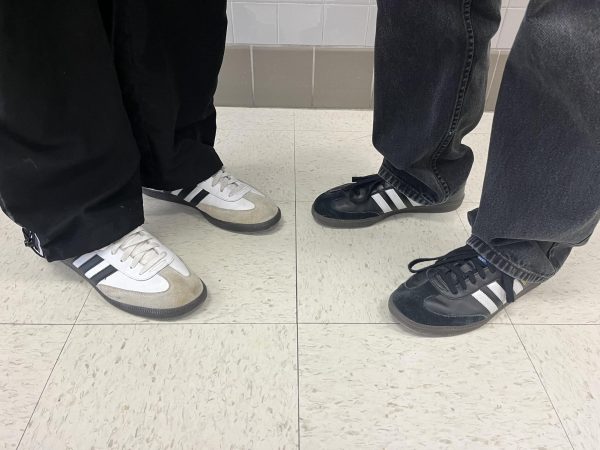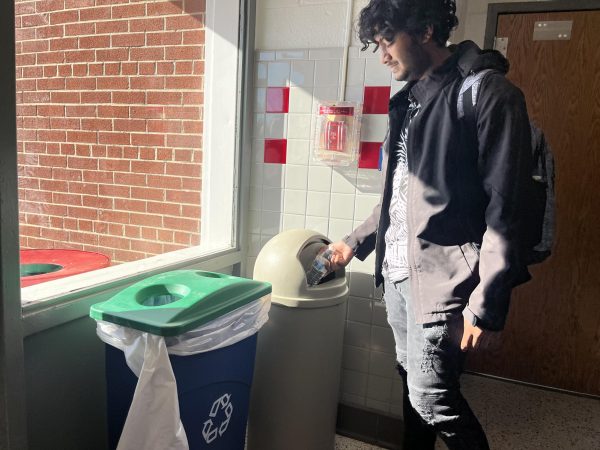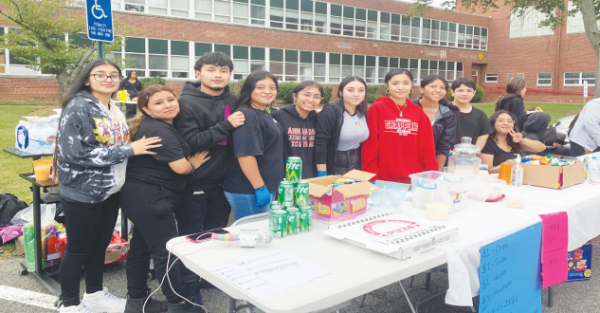Problems with flaunting
Faking and oversharing does a lot of harm
As prom season comes closer, more and more high schoolers will be posting pictures in fancy dresses, suits, jewelry, and shoes. They’ll boast fancy cars like Porsches in photos. Most will edit pictures with apps like Facetune to get the perfect prom photo. Some will post photos of expensive summer vacations in the summer.
Everyone does it, but along with the act of showing off comes a lot of issues, such as attracting criminals to steal from you and your home.
A few years ago in New Hampshire, a group of three was arrested for robbing upwards of $200,000 worth of stolen items from nearly 50 houses. When they were caught, they told police that they used Facebook to establish who had valuable items that were worth stealing.
In a study conducted by British firm Credit Sesame, it was determined that 80% of robbers use apps like Facebook, Instagram, Twitter, and Google Street View to figure out which houses had expensive and pawnable items, which houses were easy to get into, and when owners were leaving.
Whenever you post a picture of you posing in a fancy house, or wearing designer clothing, or standing by a sports car, or at a resort at an tropical island you are usually posting to show off to your friends and classmates. You are also unwillingly opening yourself up to being robbed, or maybe even harmed.
Every time you click post or tweet, you could possibly letting people with bad intentions know what’s inside your house, when you are away from home, and where you live. One of your Twitter followers may very well use your latest tweet to figure out when you’re away from home and if you have expensive jewelry in your home.
What’s worse is that some people are buying expensive things that they can’t afford solely to take pictures in them and to show them off. They are convinced that looking richer will make them feel better. In reality, they are wasting their money, when they don’t have much to begin with.
Another problem with social media is when people do things like edit selfies, or use certain angles and lighting to enhance them. Some people even post things that don’t belong to them and say it’s theirs.
Most of the things you share on social media are only viewed by people who know or at least see you often. They are aware that that is not how you really look like. When you Facetune your flaws away, a majority of the people who are scrolling through your timeline already know it exists, so unless you’re doing it for yourself there is no point.
Faking on social media also makes it look like you are unapproachable and arrogant. Nowadays, people, especially teens, use social media to figure out someone’s personality. If it’s noticed that you are constantly posting pictures of edited pictures or tweeting a picture of your cousin’s charm bracelet and trying to pass it off as yours, then people will see you as a liar, arrogant, and conceited.
People don’t want to be around others with those characteristics, so you’ll be avoided by some. This will put a strain on friendships and your peers’ willingness to work with you.
“When people post edited pictures, they’re lying because they’re not showing their true selves,” freshman Tesabih Omer said. “It makes them look fake and no one likes fake people.”
Although many people get annoyed when people post fake things or overshare on social media, others are all for it. Some say that it boosts self confidence and wins people popularity points.
“I think that using angles and editing and all that jazz helps people bring out a side of them that is more confident and secure,” freshman Kadijah Janneh said.
All in all, it’s still important to note that negative things come along with showing off and lying on social media.
If you continue to edit pictures or mislead in other ways on social media, it’s important to know how that will characterize you as a person to others.
In order to better protect yourself from occurrences like burglaries, it’s important to remember that less is more, as in more guaranteed safety. Always make sure to turn off locations when you post a tweet or picture, so people can’t find out where you live. Additionally, don’t let everyone know when you’re absent from your home, as that helps thieves decide on when to steal from you. Finally, make your social media accounts private so that only your friends and family can see your posts and you can choose on whether to accept or decline follow requests.

Senior Suad Mohamed is currently the Co-Editor in Chief and this is her fourth year on staff. Last year, she was the In-Depth Editor. Besides The A-Blast,...











